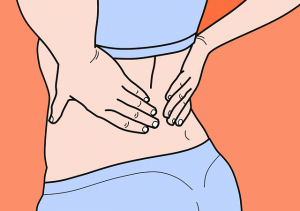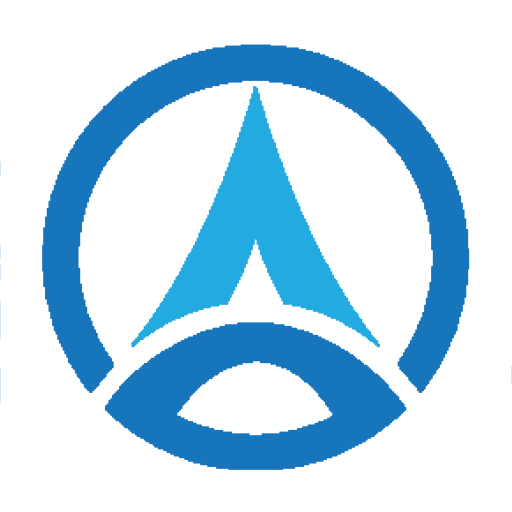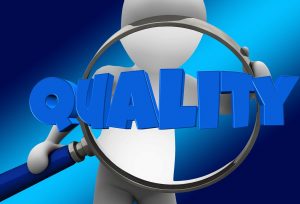Advanced Physiotherapy
We all want to see the best provider for our needs. When it comes to physiotherapy (physical therapy) finding the best option can be difficult. There are a number certifications however there are only 2 types that have approval from the American Physical Therapy Association (APTA) which are specialists and fellows. Fellows are the most advanced clinic knowledge wise a PT can become through training. To know which advanced physiotherapist will meet your needs you need to know what type of issue you have.
At Ascend Orthopaedics our goal is to provide high quality care through PTs that have the highest knowledge and the best training. All staff is board certified and either have done a residency or fellowship. This means you get a reflective and dynamic PT who can provide the best chance for you to recover. We are not a one size fits all and we do not do it all. We specialize in Orthopaedic issues which include spine (neck and back) and extremity (shoulder, hip, arm, and leg) issues. Our belief is PTs are unable to be the best at every type of injury or issue and make sure we are the best at a specific specialty. Our free initial session will help you find out if we are the right PT for you. If we are not we provide the resources you will need to get the care you desire.
To learn more about the specialist and fellows that make up less than 10% of all PTs read on and if you need a specific specialist you can learn the basics about what each one is about below.
Specialists
There are a number of specialty credentials approved by the APTA. These certified individuals make up less than 10% of all physiotherapy providers. The eight specialty areas for advanced physiotherapy are: Cardiopulmonary, Clinical Electrophysiology, Geriatrics, Neurology, Oncology, Orthopaedics, Pediatrics, Sports, and Women’s Health. As you can see these advanced areas of PT cover a broad range of individuals and their needs. Although a residency program is not required Ascend Orthopaedics believes it is an essential component to become a quality PT.
Next we will break down each specialty in advanced physiotherapy practice in the outpatient (non hospital or rehab) setting. To take the test to achieve specialist level you can challenge the test or take it after residency. To challenge the test there are basic things which include the treatment of those people who have issues within the specialty. Residency requires much more training and has courses that those who challenge the test do not go through.
Geriatrics
This specialty has a focus on those over 65. With the unique health issues in those over 65 they are the most prepared to work with them. The exam at minimum requires 2,000 hours of care with the geriatric population. Residency is typically a year with 2 to 4 hours per week of direct time with a mentor and the 30 to 40 hours of treatment time per week that includes indirect supervision. About two hours per week is spent on coursework for nearly 100 hours of time in skill and knowledge classes.

Orthopaedics
This specialty has a focus on joint and muscle issues, pain, or both. Both pre and post surgery clients are seen by them. This is the most common specialty as well as the most common patient seen in outpatient care. The minimum requirement is 2,000 hours of direct patient care of those with these issues. For residency 150 hours of one on one time with a mentor, spine (neck and back) and extremity (shoulder, hip, arm, and leg) coursework over 80 hours in total, and access to a mentor for over 1300 hours is required for completion. For those with an one of these injuries you will see better care with an orthopaedic specialist.

Pediatrics
Pediatric specialists have training in the treatment of those under 6 years old. These advanced physiotherapists work with issues that face young children. The minimum requirement to take the exam is 2,000 hours in the treatment of young kids. Residency goes beyond this with a year long program that includes 50% mentor hours which includes both direct and indirect supervision. There is one on one mentor time, lectures, rounds, and observation of surgery. The additional year of age specific training goes a long way in the treatment you get from them.

Sports
A sports specialists focus is on clients with sports injuries. These PTs are often found on the field or work with players in during the recovery from injury. They will work with high level athletes at the D1 and professional level. The minimum requirement to take the exam is 2,000 hours in the treatment of sports injuries and on field emergency responder training. Hours need to include field time which is what these PTs are good at. Residency includes 150 hours of one on one mentor time, written and lab work, and a greater focus on the treatment of the extremity (shoulder, hip, arm, and leg). There is much overlap between orthopaedics and sports with the later having a greater focus on the immediate treatment (on field) and a focus on specific sport injuries.

Women’s Health
This specialization is one many people do not realize PTs can work to. With a focus on pregnancy and postpartum issues, urinary incontinence (unable to hold bladder or leakage), pelvic (groin) pain, post-mastectomy lymphedema (fluid retention and swelling), and issues with osteoporosis (low bone density) women’s health specialists focus on issues women face. For women’s health issues a specialist is key to help give you the best chance to recover. The minimum to take the test is 2,000 hours like other exams. Residency has a focus on the issues above with a year of mentor time that includes up to 20 hours per week of direct and indirect supervision. Observation of OB/GYN practice and surgical interventions is required. and is something PTs do not otherwise get. If you have an issue like the ones above see a women’s health specialist.

Clinical Electrophysiology
You only would go to a clinical electrophysiologist PT if you have nerve symptoms. This includes pain through a large area, numbness (loss of feeling), or tingling that does not go away. To sit for the exam a PT must have at least 2,000 hours in testing and have at least 500 nerve exams in the last 10 years. Residency has a focus on courses for nerve testing, nerve study review, and 6 site visits. The residency includes mentor time where feedback is given. This type of PTs focus is to test nerves to determine their health.
Other Specialties
These specialties are not as common in the outpatient realm but are important. Oncology, neurology, and cardiopulmonary specialists can help a number of people. These people need at least 2,000 hours to challenge the exam or go through a residency. This would include mentor hours, courses, and further focus on the specific people they see. Oncology specialists work with people who have cancer. PTs who specialize in neurology work with people after stroke or brain injury. Lastly cardiopulmonary specialists work with people who have heart and lung issues and include people who have had a heart attack or need an organ transplant. All of these PTs understand better the issues these unique patients face.
There is a specialist for almost every issue you would go to a PT for. To get a PT with more knowledge these are the people to see. There are a number of reasons a PT might not become a specialist but as a person who wants to recover when you find a specialist you get a better chance to recover. Do not gamble when it comes to your health and instead choose a specialist.
Fellows
Fellowship is a certification that requires the most extensive level of training. This credential currently requires someone be a specialist above and complete fellowship training. All Ascend Orthopaedic providers will always be a fellow in training or be a fellow which they must maintain. From 1999 to 2015 only 1304 people have graduated from these programs. In that same time over 100k new physios have graduated. This means less than 1.5% of PTs complete fellowship training. By only employing people who are either fellows or completing a fellowship we know we provide the best quality care available. This is the pinnacle of advanced physiotherapy. These programs include critical care, hand therapy, higher education leadership, movement system, neonatology, orthopaedics manual PT, spine, sports division 1, and upper extremity athlete. Each of these require further training which includes mentor hours, clinical hours, and skill practice and learning.

Hand Therapy
The hand therapy fellowship requires a full time 9 month program. The fellow in training works 35-40 hours per week with 50% of the time spent on education and 50% on care where the PT is supervised. Weekly lectures with a focus on fundamentals and build up to advanced complex topics. These PTs learn the use, design, and production of splints and weekly one on one mentor time is also a part of the education. This is the highest level of training a physiotherapist can obtain in the care of hand issues. If you have a hand injury this is the best option you have for PT.

Movement Systems
This one year intensive training fellowship provides advanced training in the ability to “establish diagnoses for movement impairments, select interventions, and facilitate patient achievement of optimal functional status.” They also complete 150 hours of one on one mentor time and web based education with 4 onsite courses during the year. These fellows focus on the on how to improve how patients move.

Orthopaedic Manual Physical Therapy
This minimum of 1 year program (usually 2 years) has a focus on hands on care of joint and muscle issues. More advanced treatment techniques are learned including cervical manipulation and some programs teach dry needling. With a focus on patient centered care during 125 hours of one on one mentor time and 1,300 hours of hands on care these fellows have the highest level of training when it comes to physiotherapists and hands on care. Fellows in manual therapy currently complete the equivalent of 3+ years of additional training after the 7 years of school required to become a Doctor of Physical Therapy. If you have an orthopaedic issue this is the most trained person you can find for your care.

Spine
Spine fellowship is 52 weeks of training with classroom and lab training. The goal is to gain advanced training in clinical reasoning, exam, manual therapy, movement science, and pain science. This fellowships focus is on spine pain both acute and chronic. One on one clinical supervision is completed to allow for individual growth of the fellow in training. For people with back or neck pain a spine fellow provides great care.

Sports Division 1
This fellowship is designed to focus on high level athlete play. This fellowship includes one on one mentor time in the clinic, research and conference presentations, weekly conferencing, team physician observation, didactic work, surgical observations, and weekly cadaver lab. At minimum they need 1000 hours of time in the program and must also have 100 hours of mentor time, work at an athletic venue, and go through lab instruction . This is the highest level of training designed for the treatment of high level athletes.
Other Advanced Physios You May Not Know About
Critical Care
This program is for the acute care clinician. These PTs work in a hospital or emergency room. The skills they focus on are eval and treatment of the critically ill adult. With a focus on care in the intensive care unit (ICU) they focus on people with surgical & liver, medical, cardio thoracic, cardiac, and neurological issues. The program include: classes, self study modules, grand rounds, a minimum 190 hours of one on one mentoring, research, observation of critical surgical care, inventions, and test procedures. This allows these fellows to have the advanced knowledge to work as a PT in an ICU and for people to see the greatest benefit from their care.
Higher Education Leadership
This yearlong blended learning program with a focus on the physiotherapy profession and education. These PTs must be in academics and helps them connect theory with practice in education. This is a non clinical fellowship and unlike the other fellowship is not designed to advance patient care at the clinical level. These fellows do not provide a benefit to care in the clinic but do have more training when it comes to the education of PTs.
Neonatology
This program, one of which is at the Children’s Hospital of Philadelphia (CHoP) requires weekly participation in teaching rounds, developmental rounds, and surgical and medical case discussion. CHoPs programs goal is to provide a better depth of knowledge in regards to medical issues and the treatment of preterm and full term infants in the neonatal intensive care unit (NICU), and understand: infant sensory, motor and state development, the ICU environment and culture, and the impact the ICU has on babies and families. This program also requires a specialist credential in pediatrics, neurology, or cardiopulmonary care. This is the highest level of training available for neonatal care for a PT.
Years Do Not Make An Advanced Provider
Physiotherapists typically only need to 30 hours every 2 years to maintain their license. PTs do not become specialists with time. In comparison a residency has 150 hours of mentor training, fellowship has at least 125 and this is one one one training compared to group or online classes. There is a large difference between residency and fellowship when you compare it PTs who only do the minimum level of courses. When you see a physio you should see an advanced PT who is a specialist in the the area you need. You would not go to a Proctologist when you injure your knee, do not go to a general PT when an advanced PT can give you so much more.

Ascend Orthopaedics Home Of The Advanced Physiotherapist
At Ascend Orthopaedics we believe that high quality clinicians are the avenue to quality outcomes. This is why we require all staff to be residency trained and hold a board certification in a speciality. We take this a step further by requiring they either hold a fellowship credential or currently pursue one. This is how we know we have the most advanced physiotherapists in Philadelphia. This is part of the Ascend Orthopaedics difference. Our primary focus is orthopaedic issues and the hands on treatment or manual therapy that can help people recovery from spine and extremity issues much faster.


